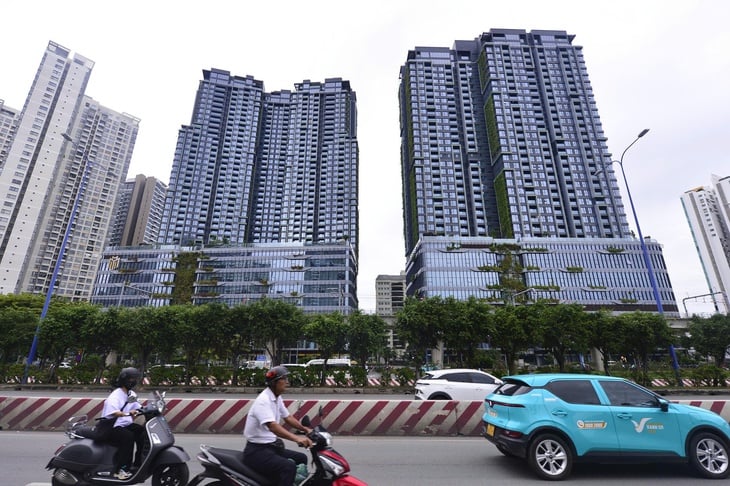
Real estate project in Ho Chi Minh City - Photo: QUANG DINH
He harshly criticized: "If you think there is no need, then you are all in heaven, all in heaven, there is no one on earth anymore."
That criticism is not only aimed at ministries and sectors related to the real estate market, but also a profound message about a chronic disease in the policy-making process: making policies that lack the breath of life and are far from reality.
"Heaven" in the Prime Minister 's metaphor is an image of authority but isolation, where people easily forget the hardships of the common people.
When policies are drafted in air-conditioned conference rooms, relying more on paper reports than on field surveys, the inevitable result is "sky-high" regulations.
The real estate market in recent years is a clear example: unsynchronized land use planning, complicated licensing procedures, tightened capital market, unreasonable taxes and fees, causing the supply of affordable housing to be almost absent.
People with real needs have difficulty accessing it, while speculators benefit. Although social housing policies have been discussed for a long time, implementation has been sluggish, procedures are cumbersome, incentives are not attractive, leading to a situation of "all fame but no action".
The lesson is that policy must grow from the ground up, not fall from the sky. In many countries, policy making always begins with field surveys, social needs analysis, and public consultation.
Policy is considered a "social contract" between the State and citizens, in which the voices of people and businesses - the parties directly affected - are always heard.
To do so, three indispensable conditions are vivid practice to correctly identify the problem, open feedback mechanisms to promptly adjust, and accurate, transparent data as a foundation.
If the above conditions are not met, policies can easily become top-down orders, difficult to implement, and even cause adverse effects.
The Prime Minister’s indignant statement is also a strong reminder about leadership and governance. Policy makers need to go to the grassroots more often to see with their own eyes, hear with their own ears, and feel the concerns of the people.
Every policy enacted must be designed as a solution to a problem, not an additional burden.
This requires a fundamental change in thinking from "easy management" to "good service", while building a mechanism for continuous testing, feedback and adjustment, instead of issuing once and then leaving it there.
The political responsibility here lies not only in drafting correctly, but also in closely following effective implementation, with the consistent question: What benefits do people get from this policy?
The problem of “sitting in heaven” does not only exist in the real estate sector. It is also manifested in many other policies: grandiose master plans but lacking resources to implement; administrative procedures designed mainly from the perspective of management agencies rather than the experience of the people; or overly ambitious development strategies that are not linked to feasible conditions.
The common point is that the gap between political will and social reality is still far, and it is this distance that creates obstacles for development.
Prime Minister Pham Minh Chinh 's metaphorical statement can be considered a reform message: Let's return to the "lower world" to make policies.
That means we must stick to life, value real data, listen to the people, so that every document issued is feasible, practical, and in line with the people's wishes. Only then will policies truly become a lever for development, a bridge between the aspirations of the Party and the State and the legitimate needs of the people.
Only then can the gap between "heaven" and "earth" be narrowed, so that the country can move forward steadily and firmly on the path of development.
Source: https://tuoitre.vn/dung-ngoi-tren-thien-dinh-de-lam-chinh-sach-20250925082731966.htm




![[Photo] Prime Minister Pham Minh Chinh chairs the Government's online conference with localities](https://vphoto.vietnam.vn/thumb/1200x675/vietnam/resource/IMAGE/2025/10/5/264793cfb4404c63a701d235ff43e1bd)


![[Photo] Prime Minister Pham Minh Chinh launched a peak emulation campaign to achieve achievements in celebration of the 14th National Party Congress](https://vphoto.vietnam.vn/thumb/1200x675/vietnam/resource/IMAGE/2025/10/5/8869ec5cdbc740f58fbf2ae73f065076)
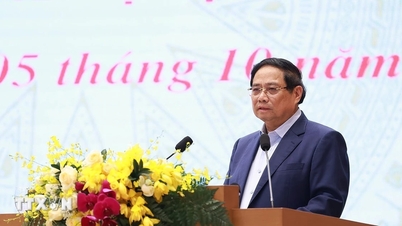

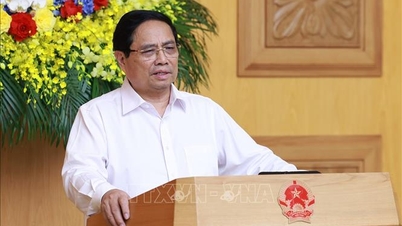

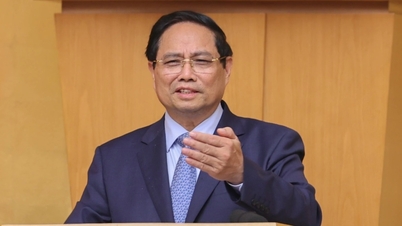

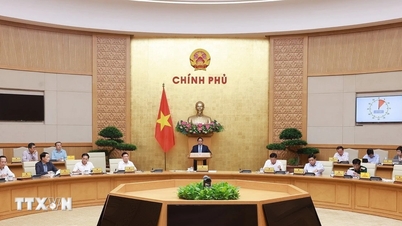
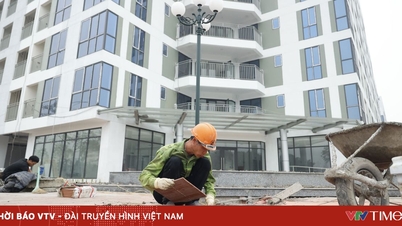

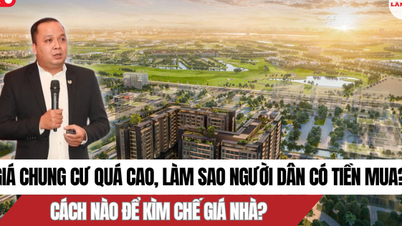

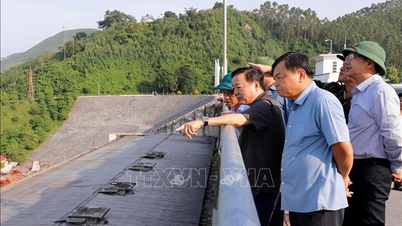
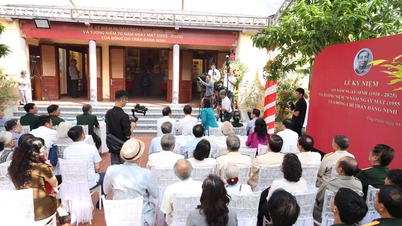

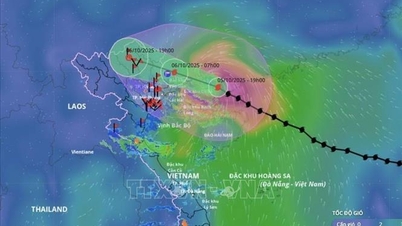
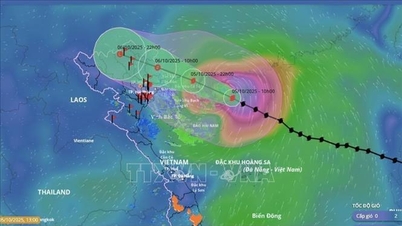



































![[VIDEO] Summary of Petrovietnam's 50th Anniversary Ceremony](https://vphoto.vietnam.vn/thumb/402x226/vietnam/resource/IMAGE/2025/10/4/abe133bdb8114793a16d4fe3e5bd0f12)

![[VIDEO] GENERAL SECRETARY TO LAM AWARDS PETROVIETNAM 8 GOLDEN WORDS: "PIONEER - EXCELLENT - SUSTAINABLE - GLOBAL"](https://vphoto.vietnam.vn/thumb/402x226/vietnam/resource/IMAGE/2025/7/23/c2fdb48863e846cfa9fb8e6ea9cf44e7)


















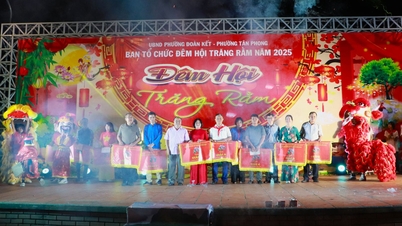















Comment (0)